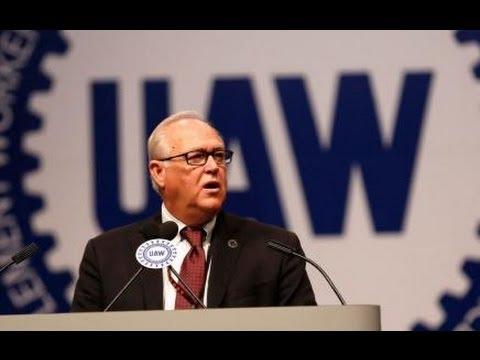UAW Update: Dennis Williams' No Good Week

The UAW’s president owes his bad week to the Michigan Supreme Court, Mitsubishi, and the implications for the ongoing Big Three contract negotiations
On Wednesday, July 29, 2015 the Michigan Supreme Court stuck a blow against forced unionization for state employees with a 4-3 ruling.
The court’s decision found that state employees are subject to Michigan’s 2012 right-to-work law. This means that 36,000 public employees are now free to stop paying union dues and fees.
Dennis Williams, the UAW president, can’t be happy with the prospect of losing 17,000 members or their dues money. Though UAW membership had risen to over 400,000 members in 2014, is still down from its historic high of 1.53 million members in 1979.
The Union had argued unsuccessfully in court that only the Michigan Civil Service Commission could decide the terms of employment for the public workers, not the state legislature which passed the right-to-work law. The decision is consistent with the Court of Appeals panel that ruled 2-1 in favor of right-to-work for public-sector employees in 2013.
And making Williams’ week worse was the loss of private-sector workers. Mitsubishi announced the closure of its last American manufacturing plant in Normal, Illinois. The plant closure represents the loss of over 1,200 jobs and 900 UAW members.
The Japanese automaker’s closure of the plant tells the usual story of manufacturing fleeing union-dominated markets to the safe havens either in the American right-to-work south or overseas.
Mitsubishi was one of few foreign carmakers that had a unionized plant in the United States. And its untimely end is bad for the UAW’s marketing team. It will be a tough sell if they ever convince employees of another foreign owned plant to join the UAW.
And the losses from Mitsubishi plant don’t add positive momentum for the union as it sits at the bargaining table with the Big Three of the automotive industry. The 2011 contracts expire on September 14, and both sides are far apart in demands for the new contracts.
Recent profit numbers from the second quarter show the Detroit automotive giants in a better financial position from where they were at in 2011. For example, Fiat Chrysler had risen from a profit margin of 4.9 percent to 7.7 percent in the latest report.
The automotive manufacturers are cognizant of what allowed them to earn these profits: lower labor costs. This was achieved in the 2011 contract by creating a two-tier wage system, which pays newer hires less. The UAW does not share the same affection for the wage system that the Big Three do. In fact, UAW is desperate to get rid of it.
But, Fiat Chrysler’s CEO Sergio Marchionne has a warning to Williams and his UAW negotiating team; “All of us who lived through the crisis of the last few years recognize the negative implication of a very shortsighted view of a wage progression."
It seems while there may be growth enough in the companies for the union to want to demand a pay raise, GM Ford, and Fiat Chrysler will not go back to the system that brought the American automotive industry to its knees.
And with the Michigan Supreme Court ruling, the UAW’s continued high-profile failures in Tennessee and Alabama, it is looking like tough times are ahead for Williams and his UAW.





